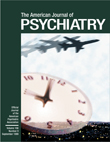This is an extremely well-edited book on a subject with which every psychiatrist, in fact every health professional, should be intimately familiar. Shame is discussed from many vantage points: the psychoanalytic, the affect constructs of Silvan Tomkins, social theory, philosophy, in the context of the family, and from a moral and religious perspective. As with any multiauthored text, there are highs and lows with regard to clarity, relevance, and readability. Having struggled through the early psychoanalytic discussions, I found the material coming alive in the chapter by Andrew P. Morrison and Robert D. Stolorow, on page 82, with the statement, “Shame can creep into the very core of our experience of ourselves, and thus constitutes the essential pain, the fundamental disquieting judgment that we make about ourselves as failing, flawed, inferior to someone else, unworthy of the praise or love of another, or falling short of a cherished ideal.”
Donald L. Nathanson provides one excellent table summarizing the cognitive issues of shame, such as helplessness, appearance, sexuality, and isolation, and another dealing with patterns of response to shame affect, namely withdrawal, attacking oneself, avoidance, and attacking others. Thomas J. Scheff and Suzanne M. Retzinger present a discussion of the pioneering work of Helen Lewis, stressing the importance of focusing treatment on the role of pride and shame in the patient’s life and in the therapeutic relationship.
Karen Hanson is a philosopher whose excellent chapter looks at shame as both a positive and negative force, motivational as well as painful and immobilizing, which, “like regret and remorse, can be understood…as part of the very operation of the uncorrupted conscience.” Scheff’s wonderful chapter on shame in social theory is must reading. Jack Katz’s chapter is filled with interesting insights into the nature of shame, how it differs from embarrassment, how its cardinal emotion is fear, and how it can set the stage for healthy humility. Sidney Levin and Suzanne M. Retzinger present very salient points about the role of shame in marital conflict, even to triggering suicide and violence, and Retzinger’s table outlining the verbal and visual markers of shame is extremely useful for clinicians. It is Aaron Lazare’s chapter on shame, humiliation, and stigma in medical practice that really brings the entire book home, reminding us of the critical importance of recognizing and dealing with these issues in our approach to all our patients.
It is ironic that the chapters I found most pertinent were, with only three exceptions, prepared by professionals who are not psychiatrists. What that tells us about what goes on in everyday practice I cannot be sure, but I take it as a warning that we should all be paying a good deal more attention to issues surrounding the shame experience, and that one of our therapeutic goals should be to help our patients (and ourselves) gain a resilient sense of self-esteem combined with a healthy dose of genuine humility.

